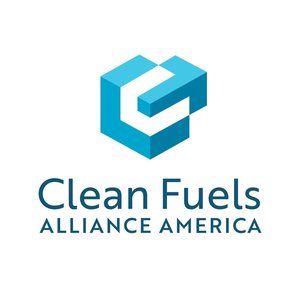Clean Fuels elects new governing board members

November 23, 2022
BY Clean Fuels Alliance America
Clean Fuels Alliance America members met in Washington in mid-November to elect new governing board leaders. Clean Fuels’ new leadership reflects the interests of both large and small companies, biodiesel and renewable diesel producers, as well as soybean growers and renderers.
“Clean Fuels is the leading trade association for biodiesel, renewable diesel, and sustainable aviation fuel,” said Clean Fuels CEO Donnell Rehagen. “Our board members bring together views and priorities from each part of the clean fuel value chain. The industry is growing rapidly to meet U.S. demand for better, cleaner fuels, and that is generating economic activity and supporting well-paying job opportunities across the country. Our elected board members will help us meet the challenge of supporting growth for every sector of the industry.”
Clean Fuels members voted to fill eight board seats for two-year terms:
•Greg Anderson, Nebraska Soybean Board
•Tim Keaveney, HERO BX
•Courtney Lawrenson, Ag Processing Inc.
•Gary Louis, Seaboard Energy LLC
•Tim Ostrem, South Dakota Soybean Checkoff
•Mike Rath, Darling Ingredients Inc.
Advertisement
Advertisement
•Rob Shaffer, ASA
•Paul Teta, Kolmar Americas, Inc.
Continuing to serve on the board for a second year are:
•Danielle Brannan, New Leaf Biofuel
•Kent Engelbrecht, ADM
•Neville Fernandes, Chevron Renewable Energy Group
•Chris Hill, Minnesota Soybean Research & Promotion Council
•Ryan Pederson, North Dakota Soybean Council
Advertisement
Advertisement
•Harry Simpson, Crimson Renewable Energy
•Dave Walton, Iowa Soybean Association
The board appointed Mike Rath to serve as Chair, Rob Shaffer as Vice-Chair, Gary Louis as Second Vice-Chair, Ryan Pederson as Treasurer, Paul Teta as Secretary, and Kent Engelbrecht as Past Chair.
Mike Rath, senior vice president with Darling Ingredients and newly appointed Clean Fuels Chair, added, “This is an exciting time for the clean fuels industry. Looking back over the last two decades, the industry has made tremendous strides in introducing new fuels to the U.S. market. Our industry currently meets 5% of the country’s need for heavy-duty on-road transportation fuel. And our growth is accelerating to meet new markets. It’s a privilege to serve the industry and I thank my colleagues for their confidence in the board leadership and support for the association.”
Rehagen noted, “We appreciate the service of our executive committee in representing the interests of the industry. I congratulate all of them on their appointments and look forward to working with them to meet the opportunities ahead.”
Clean Fuels also extended its thanks to retired governing board Chair Chad Stone, from Chevron Renewable Energy Group.
“Our members elected Chad just as we launched our vision to build a 6-bilion-gallon U.S. industry by 2030. He led our organization through its rebranding to represent all of the fuels we produce – biodiesel, renewable diesel, and sustainable aviation fuel. And he has left us stronger than ever, as our industry rapidly grows and diversifies to meet demand for better, cleaner fuels. We can’t thank Chad enough for his time, commitment, and advocacy,” said Rehagen.
Related Stories
The U.S. Energy Information Administration maintained its forecast for 2025 and 2026 biodiesel, renewable diesel and sustainable aviation fuel (SAF) production in its latest Short-Term Energy Outlook, released July 8.
XCF Global Inc. on July 10 shared its strategic plan to invest close to $1 billion in developing a network of SAF production facilities, expanding its U.S. footprint, and advancing its international growth strategy.
U.S. fuel ethanol capacity fell slightly in April, while biodiesel and renewable diesel capacity held steady, according to data released by the U.S. EIA on June 30. Feedstock consumption was down when compared to the previous month.
XCF Global Inc. on July 8 provided a production update on its flagship New Rise Reno facility, underscoring that the plant has successfully produced SAF, renewable diesel, and renewable naphtha during its initial ramp-up.
The USDA’s Risk Management Agency is implementing multiple changes to the Camelina pilot insurance program for the 2026 and succeeding crop years. The changes will expand coverage options and provide greater flexibility for producers.
Upcoming Events










